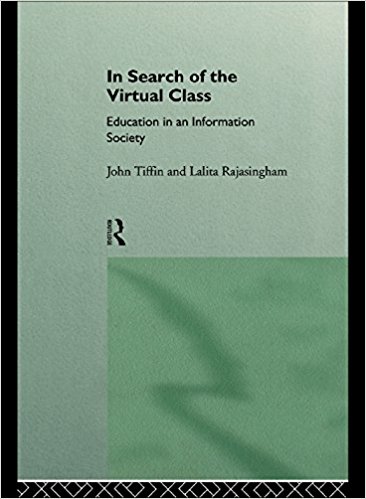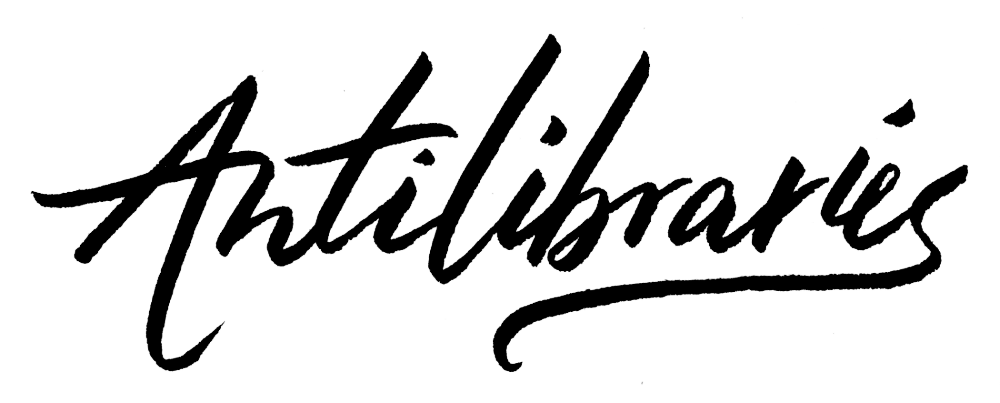In Search of the Virtual Class: Education in an Information Society
By Lalita Rajasingham and John Tiffin

A book with category listing of “Education / Communications Studies / Information Studies / Future Studies” will pretty much always catch my eye.
The book’s premise, interrogating the ramifications of “Education in an Information Society”, has remained an interesting one for several decades now. The argument here is that “[t]o Prepare people for life in an information society they need to be taught with the technology of an information society.”
It touches on topics like: communication; the classroom; problems of space, storage, and time; teacher-to-learner ratios; telelearning; the idea of the “virtual class” and more. It includes examination of a “cluster of new technologies…including virtual reality, nanotechnology, and artificial intelligence” — all of which are of course quite relevant to discourse today.
The authors refer to the classroom as a “remarkably powerful communication system”, and analyze why new technology has failed to replace it. It’s interesting to compare this early look at the “virtual class” with ones we see today, over twenty years later.
The book raises interesting questions about balance, presence, and the limits and possibilities of communication. It seems like a fascinating work of future-oriented study, and it strikes me that there are a lot of strands of cybernetic thinking here — from “fractal levels” in educational networks, to different types of “control systems” that affect educational relationships.
